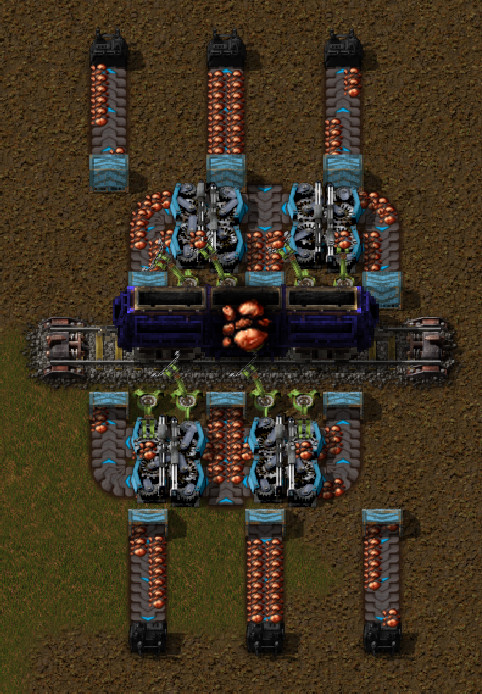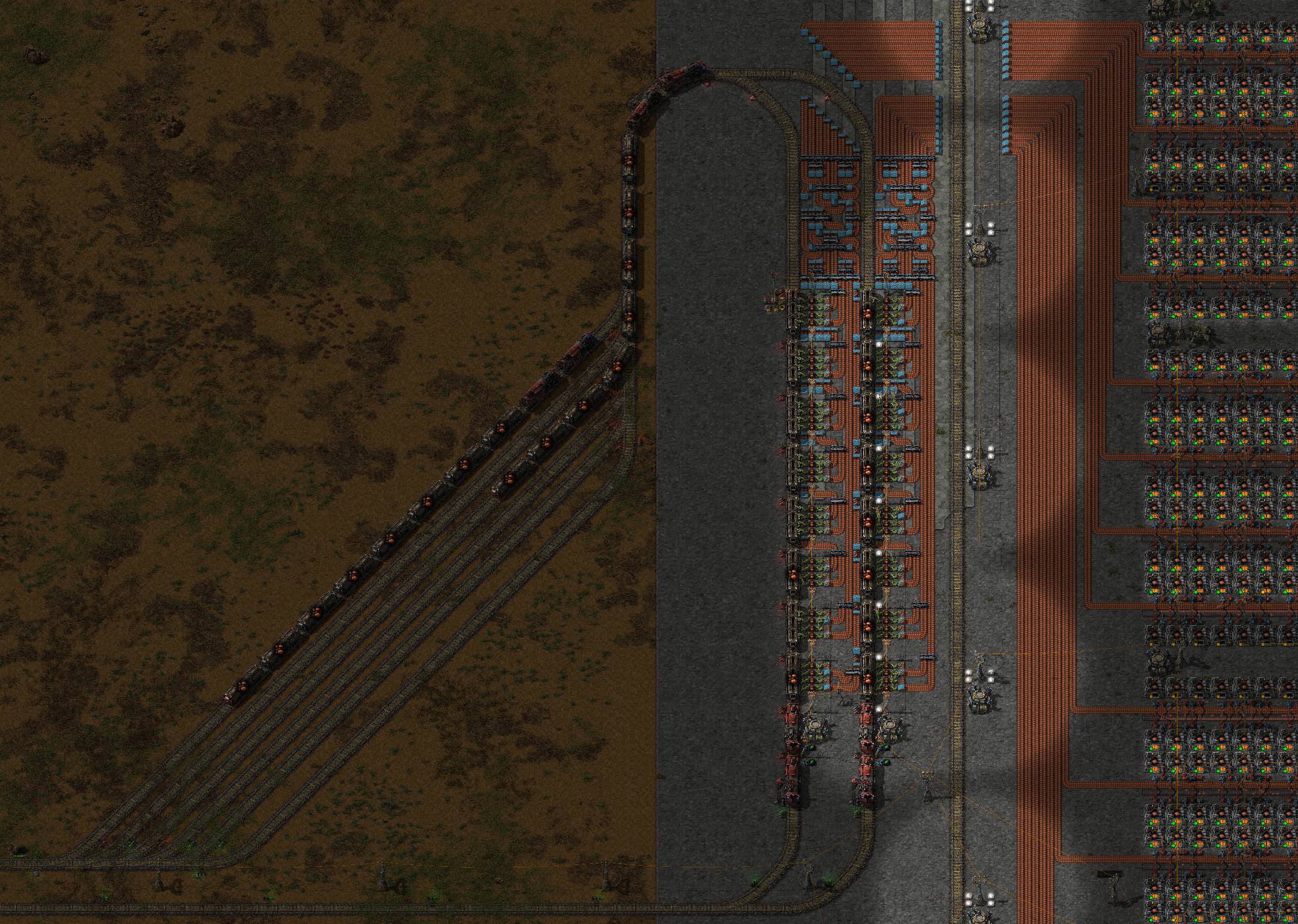That's the point where i disagree, and after a quick experiment i'm quite certain. (Also the experiment says that priority seems to be irrelevant, bots take whatever is closest)Durentis wrote:But I suspect the worst case is that the buffer chests just need to request more items (like 4k) to stay balanced.
The problem is:
If you set the buffer chests to an arbitrary high amount the bots will fill them at an equal rate. But as bots empty them based on what's closest the output rate of each buffer chest will be different. That means the bots will first empty whatever chests is closest to where they want to go. Meaning in my example, that if you put chests on the right side, they'd only be used after all the chests on the left side are empty. And that means you loose the unloading speed benefit of the right-side chests most of the time, because they're already full. Yea, there's lots of variables. But "just setting requests to 4k" is unlikely to work imho.
Which is why i said it needs a complicated circuit. The idea being that it would be optimal if each buffer chest requests the average of the total content of all buffer chests (this is a common unloading station pattern). But as you can't directly measure the content of buffer chests in that situation, you'd have to "measure" the content of the chests based on a counter that weights-inserted items vs belted-out items.
OP was very... vocal... in my thread about wanting the unloader to balance chest drainage, even if most of the output belts have stopped completely. Otherwise we wouldn't be here ^^. "Why" i don't know. It's a somewhat interesting problem but seems unreleated to "average" players.Durentis wrote:But if it's important to have compressed blue belts, I expect a sustained and sufficient drain on resources such that there will always be room in the chests to unload a train in a reasonable time. If there isn't room in the chests (they ever become unbalanced because/or the system has backed up - same effect and inevitable), it now falls to the train network to fail gracefully until the system recovers.







